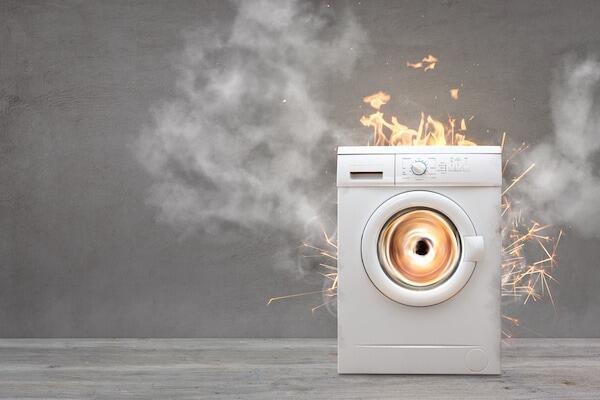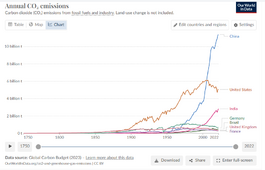You are using an out of date browser. It may not display this or other websites correctly.
You should upgrade or use an alternative browser.
You should upgrade or use an alternative browser.
Can Solar & Wind Fix Everything (e.g., Climate Change) with a battery break-through?
- Thread starter svetz
- Start date
Tommy if were you would look at my Aliexpress post on here and buy prismatic cells. Gobel and several are mentioned in that post. I will have around 15kw when done with this build am waiting on battery box to show in August or put jusy kapton tape - fiberglass combo tape them in bottom of my cabinet with jk bms. The diy battery box is due in August on slow boat from china. That is hold up. I might order the dual bolt battery cell terminals next time . More surface contact for bus bars. The small contacts are worrisome. I need capacity for longer running not so much as more amps at a higher draw. If drawing lot of amps the double post buss bars on cells are a no brainer for contacts - transfer.kind of on-topic
D71, you starting a battery build topic, with pictures?
I'm about to pull trigger on more pouch cells, could change my mind.
View attachment 221742




svetz
Works in theory! Practice? That's something else
Bird flu, dairy cows, and climate change
Swiss parliament defies ECHR
Modern Seeds Aren't Ready For Climate Change
Opinion: Article about climate change affecting bird migrations, which changed boundaries of H5N1, which causes new problems for ranchers to adapt to.“We didn’t expect to find [highly pathogenic] avian influenza in dairy cattle, and to find that it amplifies so well, and that we have so much virus in the milk,”
Swiss parliament defies ECHR
Opinion: That's interesting. ECHR is not the EU per se, it is the judicial arm of the Council of Europe for human rights and it's rulings are supposed to be binding on the Council’s 46 members, which include all 27 EU countries....who won a historic ruling on climate change at the European Court...feel shocked and betrayed by their parliament’s decision not to comply with it...[Swiss] politicians criticizing what they saw as an overreach by "foreign judges"...
Modern Seeds Aren't Ready For Climate Change
Opinion: The University of Vermont article argues that the original seeds are heartier for wider ranges of climate adaptation (e.g., more less rain, disease and insect variations).Humans have radically altered the evolution of agricultural plants since World War Two...
Fossil Fuels: The Best-Kept Secret In Our World Today
Apparently, you can litigate anything these days, and it’s gotten far more insidious than suing McDonald’s over hot coffee being, you know, hot. A new climate activist group called Our Children’s Trust is suing state and federal government agencies on behalf of individual children, claiming that fossil fuel regulators are negligently ruining their future.
That children should feel entitled to come of age under a specific set of favorable environmental and political circumstances — and to demand punishment for individuals they disagree with — isn’t just a testament to the egocentrism dominating the 21st Century. It also exposes our culture’s deeply warped understanding of climate science, which, surprisingly to many of us, actually shows global warming has no meaningful negative effects on our lives or our environment.
In fact, we have fossil fuels to thank for the twenty-first century for being the best time in human history to be alive. Unfortunately, it’s the best-kept secret in our world today.
If we really want to earn “our children’s trust,” we should teach them the truth instead of foisting crippling and needless anxiety on an entire generation.
Contrary to the attention-grabbing clips of forests burning and shock-inducing statistics about record-high temperatures, modern climate science suggests that warming is likely to remain mild and manageable while our resilience continues to improve. In fact, despite average global temperatures increasing about 1° Fahrenheit and our population quadrupling in the last century, climate-related disasters claim 99% fewer lives. Our resistance to severe weather events (which actually have remained consistent or even declined in recent decades) is actually growing at a faster rate than non-weather-related natural disasters like volcanoes and earthquakes. The alarmists want you to believe a changing climate is jeopardizing human lives; however, the opposite is true.
Our environment is also better than ever. The U.S. has cut air pollution by nearly 80% in the last 50 years and ranks number one in the world for access to clean drinking water. In fact, those infamous greenhouse gases may actually help the planet. Mild increases in atmospheric carbon dioxide create a “global greening” effect that stimulates plant growth, which both helps natural ecosystems and makes agricultural production more efficient.
Meanwhile, this is the best time in human history to be alive, thanks largely to widespread access to affordable, reliable energy. Children today have a far greater chance of living a long, healthy, fruitful life than ever before. Around the world, in both developing and developed nations, poverty has plummeted and people are enjoying the tangible, life-improving benefits of lower infant and child mortality, better nutrition, improved education, lower infectious disease rates, more economic opportunity, gender equality, and longer lives. It’s no coincidence that global quality of life spiked and has continued to improve consistently since the Industrial Revolution — or that communities without access to electricity are still plagued by poverty, danger, and disease.
For a group claiming to seek “Our Children’s Trust,” this activist group seems to be deliberately abusing children’s trust.
With nearly any factoid we could wonder about immediately accessible on our smartphones, how could we have possibly gotten it so wrong about climate change? The jury is out on whether the cultural cancer of climate alarmism is the result of a deliberate plot for political power by global elites or simple negligence by a society that accepts the claims of those in authority (or simply those who pop up in our Tik Tok algorithm) at face value.
I suspect it’s a combination of both. “Indoctrination” has become a political buzzword, and while there’s no denying there are bad actors out there in schools and governments with agendas to push at all costs, the real problem with the public’s view of climate change is far subtler — which means it’s also harder to root out.
The problem is that no political issue, including this one, is black and white, but few feel they have the time to educate themselves on the nuances and confounding variables of hundred- or even thousand-page research reports. It’s easier to accept grossly oversimplified top-line takeaways as gospel and reduce them to even less accurate headlines and soundbites. I’ve seen the consequences firsthand working with state education leaders on science curriculum standards. Few are truly setting out to put misleading or incomplete information in our classrooms, but the misinformation is pervasive and there’s simply so much information to sift through to get to the real nuggets of truth.
But we need to do better — for our children’s sake.
Svetz's masters want you to eat fake meat. This is why they are going to spin the "chicken flu that kills flying cows because of cLIEmate change" next
The globalist elites at the World Economic Forum (WEF) are calling on governments to promote fake meat and other alternative proteins in a coordinated effort to change consumers’ behavior.
Shocking, I know.
The authors of a white paper entitled “Creating a Vibrant Food Innovation Ecosystem: How Israel Is Advancing Alternative Proteins Across Sectors,” claim that changing humans’ eating habits will require a global effort with governments and corporations working together.
Yes, bloated governments and big corporations working together to manipulate and coerce the little people’s behavior is a great idea!
And perfectly befitting of fascism, or at least a robust oligarchy!
Fake meat.
Fake genders.
Fake news.
Artificial intelligence.
I am sick of it all.
Is anything real anymore?
Yes, the existential danger this represents to us as humans -- and formerly free and sentient beings -- is all too real, indeed.
World Economic Forum Says, 'Let Them Eat Fake Meat!'
The globalist elites at the World Economic Forum (WEF) are calling on governments to promote fake meat and other alternative proteins in a coordinated effort to change consumers’ behavior.
Shocking, I know.
The authors of a white paper entitled “Creating a Vibrant Food Innovation Ecosystem: How Israel Is Advancing Alternative Proteins Across Sectors,” claim that changing humans’ eating habits will require a global effort with governments and corporations working together.
Yes, bloated governments and big corporations working together to manipulate and coerce the little people’s behavior is a great idea!
And perfectly befitting of fascism, or at least a robust oligarchy!
Fake meat.
Fake genders.
Fake news.
Artificial intelligence.
I am sick of it all.
Is anything real anymore?
Yes, the existential danger this represents to us as humans -- and formerly free and sentient beings -- is all too real, indeed.
If it is true that “you are what you eat,” as the old adage has it, then what does that make us?
As consumers of heavily processed, chemically treated, GMO-infested gunk, we in the modern, developed world have solved the problem of hunger that plagued our forebears since time immemorial by handing our food sovereignty over to a handful of corporate conglomerates.
The result of this handover has been the creation of a factory farming system in which genetically engineered crops are doused in glyphosate and livestock are herded into tiny pens where they live their entire lives in fetid squalor, pumped up with antibiotics and growth hormones until they are slaughtered and shipped off to the supermarkets and fast food chains.
There are plenty of documentaries and exposés detailing the dangers of this industrial farming system that we find ourselves beholden to. Any number of activists ringing the alarm about these problems. Numerous campaigns and marches organized to raise awareness about these issues.
Yet still, nation after nation gets fatter and sicker as traditional diets based on fresh produce sourced from local farmers are displaced by the fast food pink slime sourced from the industrial farms of the Big Food oligopoly.
But, as bad as things may be, they’re about to get even worse. As crisis after crisis disrupts the food supply, the “solution” to these problems has already been prepared.
New technologies are coming online that threaten to upend our understanding of food altogether. Technologies that could, ultimately, begin altering the human species itself.
This is your guide to The Future of Food

As consumers of heavily processed, chemically treated, GMO-infested gunk, we in the modern, developed world have solved the problem of hunger that plagued our forebears since time immemorial by handing our food sovereignty over to a handful of corporate conglomerates.
The result of this handover has been the creation of a factory farming system in which genetically engineered crops are doused in glyphosate and livestock are herded into tiny pens where they live their entire lives in fetid squalor, pumped up with antibiotics and growth hormones until they are slaughtered and shipped off to the supermarkets and fast food chains.
There are plenty of documentaries and exposés detailing the dangers of this industrial farming system that we find ourselves beholden to. Any number of activists ringing the alarm about these problems. Numerous campaigns and marches organized to raise awareness about these issues.
Yet still, nation after nation gets fatter and sicker as traditional diets based on fresh produce sourced from local farmers are displaced by the fast food pink slime sourced from the industrial farms of the Big Food oligopoly.
But, as bad as things may be, they’re about to get even worse. As crisis after crisis disrupts the food supply, the “solution” to these problems has already been prepared.
New technologies are coming online that threaten to upend our understanding of food altogether. Technologies that could, ultimately, begin altering the human species itself.
This is your guide to The Future of Food

THE PUSHBACK
Now, if there is any good news to be had in the sad saga of future (fake) food, it’s that the people are waking up to the Great Food Reset agenda and they are not happy about it.For a trivial example of the pushback against the fake food agenda and the oligarchs stewarding over it, witness Bill Gates’ recent “AMA” (ask me anything) thread on reddit, where one heavily upvoted question put the issue to America’s largest farmland owner directly:
Gates’ answer—employing the fact checkers’ ACKSHUALLY! by pointing out that he “own less than 1/4000 of the farmland in the US [sic]” and that his only interest in farms is “to make them more productive and create more jobs”—is to be expected from a man who has spent billions on PR and propaganda in recent decades to transform his public image from that a reviled tech monopolist to that of a revered billionaire philanthropist.Why are you buying up so much farmland, do you think this is a problem with billionaire wealth and how much you can disproportionally acquire? [sic]
The response to that answer, however—observing that 1/4,000th of US farmland is still an incredibly large amount of land and that Gates did not explain how consolidation of farmland in fewer hands will transform the agricultural sector—shows that the public is not buying Gates’ PR wholesale anymore.
A less trivial example of the pushback against Gates and his ilk is to be found in the “Open Letter to Bill Gates on Food, Farming, and Africa” published last November and signed by no less than 50 organizations dedicated to food sovereignty, including the Community Alliance for Global Justice/AGRA Watch and the Alliance for Food Sovereignty in Africa. The letter derides Gates’ role in “creating the very problem” of global food shortages that he is ostensibly “fixing,” accusing him of pushing ineffective (but profitable) technocratic solutions instead of simpler, less expensive agricultural solutions:
The pushback against the transformation of the food supply is not limited to Gates and his eponymous foundation’s efforts, however.There are already many tangible, ongoing proposals and projects that work to boost productivity and food security—from biofertilizer and biopesticide manufacturing facilities, to agroecological farmer training programs, to experimentation with new water and soil management techniques, low-input farming systems, and pest-deterring plant species. What you are doing here is gaslighting—presenting practical, ongoing, farmer-led solutions as somehow fanciful or ridiculous, while presenting your own preferred approaches as pragmatic. Yet it is your preferred high-tech solutions, including genetic engineering, new breeding technologies, and now digital agriculture, that have in fact consistently failed to reduce hunger or increase food access as promised.
Resistance against GMO foods, for instance, is massive. In fact, the more the biotech billionaires try to shove their genetically modified monstrosities on vast swaths of the human population, the more the public is rising up to reject them. In recent months alone we have seen people rebelling against GMOs in Turkey, Kenya, Nigeria, Mexico, Pakistan and Indonesia.
All of these protests against the Great Food Reset are hopeful signs. They show that the public are not simply going to swallow anything that is put on their plate.
But even more important than these examples of protest and pushback are the things that we can do to take the Future of Food away from the agribusiness conspirators and their bought-and-paid-for politicians and put it back in the hands of the people.
It involves getting our hands dirty and getting to work . . . but that’s the way it’s always been. And the alternative to this, this working of the land, is, as we have seen, no alternative at all.
And in the end, the future of food is ours to decide
DPC
Solar Enthusiast
I already have worked on trolley electric with battery back up systems.
Its going to take an adjustment to using cars that have to be recharged daily but its not something I worry about.
The high cost to get into a small electric pick up truck ( I would like an S-10 or something please ) with basic options just for use around town and I don't think thats much to ask for.
These are trolley electric with battery back up.
Incredibly difficult and complicated to learn on because the 80s technology was all discrete parts and analog, but it had enough computers on to manage all these systems.
I know if today's battery technology was applied it could have been a machine you wanted to work on
Did I mention no smoke much less noise?
Its going to take an adjustment to using cars that have to be recharged daily but its not something I worry about.
The high cost to get into a small electric pick up truck ( I would like an S-10 or something please ) with basic options just for use around town and I don't think thats much to ask for.
These are trolley electric with battery back up.
Incredibly difficult and complicated to learn on because the 80s technology was all discrete parts and analog, but it had enough computers on to manage all these systems.
I know if today's battery technology was applied it could have been a machine you wanted to work on
Did I mention no smoke much less noise?
svetz
Works in theory! Practice? That's something else
Great video Will, thanks for posting it, hope it wakes people up
The only place where I disagree with what @Will Prowse said is the use of "all" regarding subsidies. I think subsidies can be good in a variety of instances. For example to help nascent technologies get off the ground. The price of solar panels has dropped over 400% since the 70s, much of the innovation was only possible because of the demand which was created with artificially low prices provided by subsidies. Once a technology is off the ground though they should be removed.
Now here's an oddity regarding the solar panel subsidy for folks to mull over. The current tariff is 50% and the current rebate is 30% for panels. So, every $100 worth of imported solar panel sells for $150, and tax payer gets them for $105 after rebate. That is the tariff completely pays for the subsidy and leaves revenue for uncle Sam's pockets. So the subsidy isn't actually a benefit for consumers and the tariff isn't much of a deterrent. It is however a source of revenue for the government.
The only place where I disagree with what @Will Prowse said is the use of "all" regarding subsidies. I think subsidies can be good in a variety of instances. For example to help nascent technologies get off the ground. The price of solar panels has dropped over 400% since the 70s, much of the innovation was only possible because of the demand which was created with artificially low prices provided by subsidies. Once a technology is off the ground though they should be removed.
Now here's an oddity regarding the solar panel subsidy for folks to mull over. The current tariff is 50% and the current rebate is 30% for panels. So, every $100 worth of imported solar panel sells for $150, and tax payer gets them for $105 after rebate. That is the tariff completely pays for the subsidy and leaves revenue for uncle Sam's pockets. So the subsidy isn't actually a benefit for consumers and the tariff isn't much of a deterrent. It is however a source of revenue for the government.
svetz
Works in theory! Practice? That's something else
Are politicians failing the climate?Opinion: If you don't believe then I can understand trying to avoid expenses targeted towards climate change. But, for the politicians that do believe, who are jetting around the world for these meetings and conferences (e.g., COP)... why isn't there a holistic multi-national plan? Where's the urgency? In conversations with a friend about the Movie Godzilla minus one they reminded me of how divided America was on entering WWII. Rallies for and against, Nazis in Madison Square Gardens, and fascism actually resonated with a lot of people (mainly because of propaganda). Then the Japanese bombed Pearl Harbor and it all changed overnight. It was the event that America needed to rally to a single unified cause. I doubt we get that with climate change, it's more like leaving the lobster in a pot of water and slowly increasing the temperature. |

Godzilla Minus One, a great movie! |
A Study of Climate Misinformation on YouTube
| Percentage of Scientists that recognize Climate Change is real It depends on the year, the study you cite, and who gets included in the study. What Energy experts say:
| 
Studies on number of scientists that support the climate change theory. |
Last edited:
svetz
Works in theory! Practice? That's something else
svetz
Works in theory! Practice? That's something else
Last edited:
svetz
Works in theory! Practice? That's something else
The bit about eliminating methane would actually (slightly) reverse global warming in the short term was news to me. Sounds a lot better than direct air capture or geo-engineering as short term measures.
Last edited:
I like most of what Will said in the video, I liked how he corrected or clarified the things he said in the video I even learned some new things like how the BMS fails in the Tesla pack, not the battery. Like you, I think subsidies are useful to get an industry started, not so much when they are well established or even more detrimental to the environment than the alternatives. Will mentioned something like that as well when he mentioned corn subsidies.Great video Will, thanks for posting it, hope it wakes people up
The only place where I disagree with what @Will Prowse said is the use of "all" regarding subsidies. I think subsidies can be good in a variety of instances. For example to help nascent technologies get off the ground. The price of solar panels has dropped over 400% since the 70s, much of the innovation was only possible because of the demand which was created with artificially low prices provided by subsidies. Once a technology is off the ground though they should be removed.
Now here's an oddity regarding the solar panel subsidy for folks to mull over. The current tariff is 50% and the current rebate is 30% for panels. So, every $100 worth of imported solar panel sells for $150, and tax payer gets them for $105 after rebate. That is the tariff completely pays for the subsidy and leaves revenue for uncle Sam's pockets. So the subsidy isn't actually a benefit for consumers and the tariff isn't much of a deterrent. It is however a source of revenue for the government.
The rebate is probably for the entire install, I don't know if DIY people like you would be entitled to them. If so, the solar panels themselves would only be a fraction of the total cost and government will still end up on the loosing end. I am guessing that the solar installers would be the winners of the rebates, more so than the home owners. They will dispute that, but there are examples where removing subsidies makes manufacturing and installation more efficient, including in China.
The debate that I find more interesting is why the US can't compete with China when it comes to manufacturing solar panels and batteries. And why the big three auto manufactures are not switching to electric cars big time. There is a ton of money to be made there, for example Elon Musk got himself a 55 Billion dollar bonus...
Doug Casey On How The Climate Hysteria Is Lowering Your Standard Of Living
International Man: The carbon hysteria extends far beyond oil and gas companies.One overlooked area is household appliances.
Politicians are implementing increasingly stringent regulations for dishwashers, washing machines, and other appliances. There have even been reports of a desire to phase out gas stoves.
What’s your take on all of this?

International Man: Many people have noticed that modern appliances are not the same quality as the ones produced decades ago. For one thing, modern appliances tend to require much more time to do the same thing an older model could do faster.Doug Casey: As Der Schwabenklaus of the World Economic Forum boldly said some years ago, “You’ll own nothing and be happy.”
The fact that a prominent figure could actually say that, promote the idea, and not be pilloried gives you an idea of the spirit of the current century. The lack of outrage from the average man is even more sick than the idea itself.
Not owning appliances is a practical application of the meme, but just one tentacle of the global warming octopus. Appliances are constructed from resources that have to be mined and run with electricity; that makes them evil. It’s much more important in these people’s views to “save the planet”—a ridiculous concept—than to continue raising the standard of living.
The fact is that the self-righteous authoritarians who want to limit the use of appliances basically just hate people—especially middle-class people. They’d really like to revert to pre-capitalist times, when only the upper classes, the feudal aristocrats, could benefit from conveniences.
Ecowarriors, the Greens, are cut from the same cloth as socialists, communists, and fascists. Their totem fruit is the watermelon, green on the outside and red on the inside.
For example, today, it’s common to see a standard dish-washing cycle to take more than two hours.
Modern appliances also don’t perform as well and break down more frequently. Climate regulations are largely to blame for this regression.
What is really going on here?
Doug Casey: I don’t have a lot of personal experience with how appliances work, but I’ve certainly heard that modern appliances are designed to sacrifice convenience and time in order to possibly use less water or electricity.
One thing that I do recall is that several decades ago, the US government decided to regulate the amount of water that could be used to flush toilets. The devices are now less sanitary and often have to be flushed twice. The idea that politicians should mandate plumbing designs is absurd. But they do this with all products—cars, planes, houses, you name it. They destroy capital and slow technological progress, even while annoying and frustrating engineers.
But perhaps the average person doesn’t think about these things or care. The standard of living has gone up for so long that we tend to think it’s automatic and divinely ordained. I’m not so sure about that. Everything tends to wind down unless there is enough outside force to counteract it.
For instance, we live in a throwaway society. If you need something repaired, it’s generally more economic to throw the whole thing away than to hire a skilled craftsman to fix it, even though they barely exist anymore, and they’re very expensive. It’s often cheaper to replace things that break.
Is that truly economic or not? I’m not sure, but we can see it even with houses. Once upon a time, houses were built to last 100 years or longer. They were a major capital investment. But now, they seem to be the residential equivalent of IKEA furniture. They’re disposable assets. But who cares if you’re renting or have a large mortgage?
I can understand how a “throwaway” mentality might be a good thing, even though it seems wasteful, simply because technology improves. Out with the old, in with the “new and improved.” Most changes make electricity, plumbing and insulation more economic. Who wants old stuff when technology can give you new stuff that works better? The problem, however, might be that new appliances are expensive and often financed. Your standard of living might go up in the short run but further down in the long run as you deal with debt.
A case can be made for everything being bulldozed after 50 or 100 years—a cycle of life argument. You may want to keep an old car for sentimental reasons, but newer cars really do work better. Although you’ll probably have to finance the thing over seven years since they’re so expensive. Or lease it, turning a minor asset into a perpetual liability. And if it breaks, you can forget about trying to fix it yourself, if only because of its thousands of computer chips. The same is true with most devices.
There are reasons to hate appliances and devices even while you need or even love them. But I prefer to make the decision, not some government official. It’s a moral question, not a technical question.
International Man: Governments present so-called “green” solutions as a step forward to the future.
However, in many ways, they represent a big step backward.
What is your take?
For example, the average person might typically be expected to be upset by a drastic rise in meat or energy prices.
But his anger is muted and misdirected by the media, academia, Hollywood, and politicians telling him that his reduced standard of living is somehow helping save the planet. It seems like the carbon hysteria is a mass campaign to gaslight people into accepting a lowering of their standard of living.
What is your view on the relationship between inflation and the carbon hysteria?
However, in many ways, they represent a big step backward.
What is your take?
International Man: The rise of carbon hysteria has coincided with rising inflation.Doug Casey: One currently fashionable indication of this is the 15-minute city, which governments are trying to impose all over the world. These would penalize you if you exit your designated 15-minute zone more than X number of times per month. The idea is green. And, like most green notions, it is very retrogressive. They want to return people to the status of medieval serfs, when few ventured more than 15 minutes from their hovels.
The most egregious green solutions, of course, involve spending trillions of dollars to build wind and solar facilities to generate electricity. There’s nothing wrong with using wind or solar power, but they only make sense for specific projects, usually in isolated locations under special conditions.
Wind and solar are totally unsuitable for running an industrial civilization. They’ve gotten much better over the years as technology has advanced, but they’re still more the product of social engineering than mechanical or electrical engineering.
Electric vehicles are another example. As a lifelong car guy, I see advantages to EVs. They have very low centers of gravity, which, everything else being equal, makes them handle much better than equivalent internal combustion engine cars. They have many fewer moving parts, which adds to reliability and efficiency. They’re quieter, emissions-free on the road, and lightning-fast. These are big pluses.
But on the downside, they’re a nightmare when it’s too cold or too hot; temperature extremes drain batteries, and it’s still quite inconvenient to charge them. That’s assuming the huge extra load they entail doesn’t cause the whole “sustainable” wind/solar grid to collapse.
Of course, battery technology will improve, so they may yet fulfill their promise. But in the meantime, when the lithium battery needs replacement, you might as well junk the car. Plus, they tend to be ultra-expensive to repair if you’re in a fender bender and potentially quite dangerous under certain conditions.
Unless I either want a high-performance plaything or was in an ideal environment where I’m just using it locally, EVs don’t currently make much sense.
In fact, almost all “green” solutions are uneconomic, counterproductive, and even destructive.
For example, the average person might typically be expected to be upset by a drastic rise in meat or energy prices.
But his anger is muted and misdirected by the media, academia, Hollywood, and politicians telling him that his reduced standard of living is somehow helping save the planet. It seems like the carbon hysteria is a mass campaign to gaslight people into accepting a lowering of their standard of living.
What is your view on the relationship between inflation and the carbon hysteria?
International Man: Where is the carbon hysteria trend headed? Have we hit the high water mark?Doug Casey: Well, inflation is caused by money printing. The carbon hysteria will mostly be financed by money printing. So, there’s an indirect relationship. But it’s actually worse than that.
It’s long been said that war is the health of the State. We’re now looking at an insane war on carbon to supposedly save the planet. Carbon is not only the basis of all life, but CO2 levels are only marginally above what’s necessary to sustain plant life.
It’s genetically inbred in people to pull together during a war. The eco-hysterics ask: “What could be more important than a war to save the planet?” So, of course, thoughtless people will accept less and do what they’re told. In my view, this is all complete nonsense.
If they tell the plebs that inflation is somehow necessary to fight deadly CO2 and save the planet, then the average pleb will probably go along, since he’s got almost no knowledge of economics, and even less of science.
The planet will be just fine. It’s been here for 4.5 billion years and will be here for billions more, long after humanity has disappeared or gone elsewhere. Anyway, the climate hysterics don’t really care about “saving the planet”; even they aren’t quite that stupid. What’s going on is that they actually hate humanity. And themselves. The world is suffering from an episode of mass psychosis.
My reaction is to push against them wherever possible.
Doug Casey: Well, we have to look at both long-term and short-term trends.
The long-term trend—the ascent of man—has been in motion for at least 10,000 years. It’s been advancing exponentially with more scientific breakthroughs, leading to better technology and a higher standard of living.
Will that trend stop? I’d like to think it will not only continue but accelerate.
But there have been counter trends within that very favorable long-term trend. The Bronze Age collapse around 1200 BC set civilization back for over 400 years. The fall of Roman civilization in the West led to the Dark Ages from roughly the fifth through the ninth centuries. Could we be on the cusp of something similar? There are plenty of reasons for concern. But let’s not engage in fear porn.
I hate to think something so dire is in the cards. But Dark Riders are at large, and the eye of Sauron is scanning the world. The tendency towards authoritarianism or even totalitarianism worldwide is growing—not to mention the possibility of World War III.
The negative trends go way beyond carbon hysteria and appliances that don’t work very well.
Yes, it’s that time again kids, panic the American people over heat waves by blaming them on climate change.
This past week several news outlets talked about the “Western Heat Wave” and tried to link it to “climate change.” Climate Central was the source of most of these stories with a press release that said:
“Between June 5-7, much of the Western United States, Mexico, and Eastern Canada are poised to experience a period of unusually hot conditions made much more likely because of human-caused climate change. During this period, over 229 million people across North America will experience extreme heat made at least three times more likely because of human-caused climate change.”
We see this every year, and we’ll see it again this year as the feckless media regurgitates the heatwave hype. We will tackle this subject, as well as go over the Crazy Climate News of the Week. Tune in LIVE for the stream at 1 p.m. ET (noon CT) to watch the show and leave your own questions in the chat with host Anthony Watts, along with panelists H. Sterling Burnett and Linnea Lueken.
This past week several news outlets talked about the “Western Heat Wave” and tried to link it to “climate change.” Climate Central was the source of most of these stories with a press release that said:
“Between June 5-7, much of the Western United States, Mexico, and Eastern Canada are poised to experience a period of unusually hot conditions made much more likely because of human-caused climate change. During this period, over 229 million people across North America will experience extreme heat made at least three times more likely because of human-caused climate change.”
We see this every year, and we’ll see it again this year as the feckless media regurgitates the heatwave hype. We will tackle this subject, as well as go over the Crazy Climate News of the Week. Tune in LIVE for the stream at 1 p.m. ET (noon CT) to watch the show and leave your own questions in the chat with host Anthony Watts, along with panelists H. Sterling Burnett and Linnea Lueken.
German Hydrogen Rollout Fails To Take Off

ESSEN, Germany, June 12 (Reuters) – Investor caution about hydrogen as a future source of energy to reduce emissions of greenhouse gases did not suggest slowing resolve to phase out fossil fuels, German industry executives and policymakers said on Wednesday, pleading for patience.
They told a conference organised by the Handelsblatt business newspaper that regulatory support for new value chains would bring about a large-scale switch to renewably derived hydrogen energy early next decade.
Germany wants national electrolysis capacity of 10 gigawatts (GW) by 2030. Last month, it approved an acceleration bill to help decarbonise the EU’s lead industry, whose manufacturers are key to future hydrogen consumption.
Critics say that final investment decisions on only 300 MW of projects, according to data presented by utility E.ON , indicate of possible failure, while reliance on future bulk imports is nebulous.
If Germany does not manage the move to hydrogen, it will weaken the entire bloc’s chances of adopting it and competing successfully with the United States and China.
https://www.reuters.com/sustainabil...-urge-patience-hydrogen-conversion-2024-06-12
TRANSLATION
Without massive subsidies, hydrogen is a non-starter in Germany.

The EV car crash continues
The EV car crash continues. By Joanne Nova. Things are so bad in the world of electric cars that fields of the cars-of-the-future are appearing at ports in the EU. China has shipped 1.3 million EV’…
 wentworthreport.com
wentworthreport.com
Things are so bad in the world of electric cars that fields of the cars-of-the-future are appearing at ports in the EU. China has shipped 1.3 million EV’s there in the last quarter but they are piling up in car parks unsold. Countries within the EU are throwing money at customers to get them to buy EV’s, and companies are discounting too, but still it isn’t enough. EV sales fell by 11% across the EU and by 29% in Germany.
Across the Atlantic, something is going wrong in the USA too. The world’s top brand is renting space in shopping centres and airports in America to store the unsold cars.
Car dealers are warning they might not be able to sell many petrol cars, even when buyers walk in to buy them, because they can’t find enough EV buyers so they can meet the mandated target ratio. We might be at the start of a buyer freeze…

Australia’s bureaucrats, aping their overseas counterparts, are late to the party as usual:
With uncanny timing the Australian government has adopted the same rigged ratio of EV sales that isn’t working in the UK or the US, and they’ve done it the same week car magazines here are just starting to ask “Is the honeymoon over for electric vehicles in Australia?”
Australia is years behind the EV bubbles of Europe and America because we are the last rich nation on Earth that anyone would want to buy an EV in. We’re sparsely populated and 5,000 kilometers wide. Half the continent doesn’t have high voltage line within 100 kilometers of the road let alone a fast charger.
As luck would have it, sales for EVs in Australia were barely starting to take off, but EV sales declined in April for the first time since EV’s became “a thing”. It’s only a 5% slip, but it’s the trend, the trend…
Bob B
Emperor Of Solar
- Joined
- Sep 21, 2019
- Messages
- 9,157
I think I need to put the chart on some sort of speed dial.
Is it sane to be setting impossible fuel efficiency standards and trying to re-engineer the entire world food system when none of that addresses the REAL problem?
Oh, and if you don't think they are trying to re-engineer the food system .... watch the video clip in this link. Bill wants radical action to shift the world food economy in his direction.
Tell me how the destruction of our food system is going to fix this problem.

Is it sane to be setting impossible fuel efficiency standards and trying to re-engineer the entire world food system when none of that addresses the REAL problem?
Oh, and if you don't think they are trying to re-engineer the food system .... watch the video clip in this link. Bill wants radical action to shift the world food economy in his direction.
Tell me how the destruction of our food system is going to fix this problem.

svetz
Works in theory! Practice? That's something else
Climate change fuels tensions in Nigeria
Opinion: Not really surprising, self interest usually wins out (that is the money wasn't from governments, it was from investors looking to make money).
Opinion: With EV credits, that would put it around $17k in 2027? More... I think this is good news, having low-cost options will help keep American automakers strong as they'll be able to compete with the Chinese brands. Three years out, they can probably hold on that long. @fpgt72 might have some inside news and valuable insights.
The country is witnessing climate-related shocks which are triggering displacement and driving conflict, he said, singling out clashes over dwindling resources between farmers and herdsmen.
Last edited:
Similar threads
- Replies
- 169
- Views
- 5K
- Replies
- 10
- Views
- 561
- Replies
- 13
- Views
- 691
- Replies
- 5
- Views
- 671



